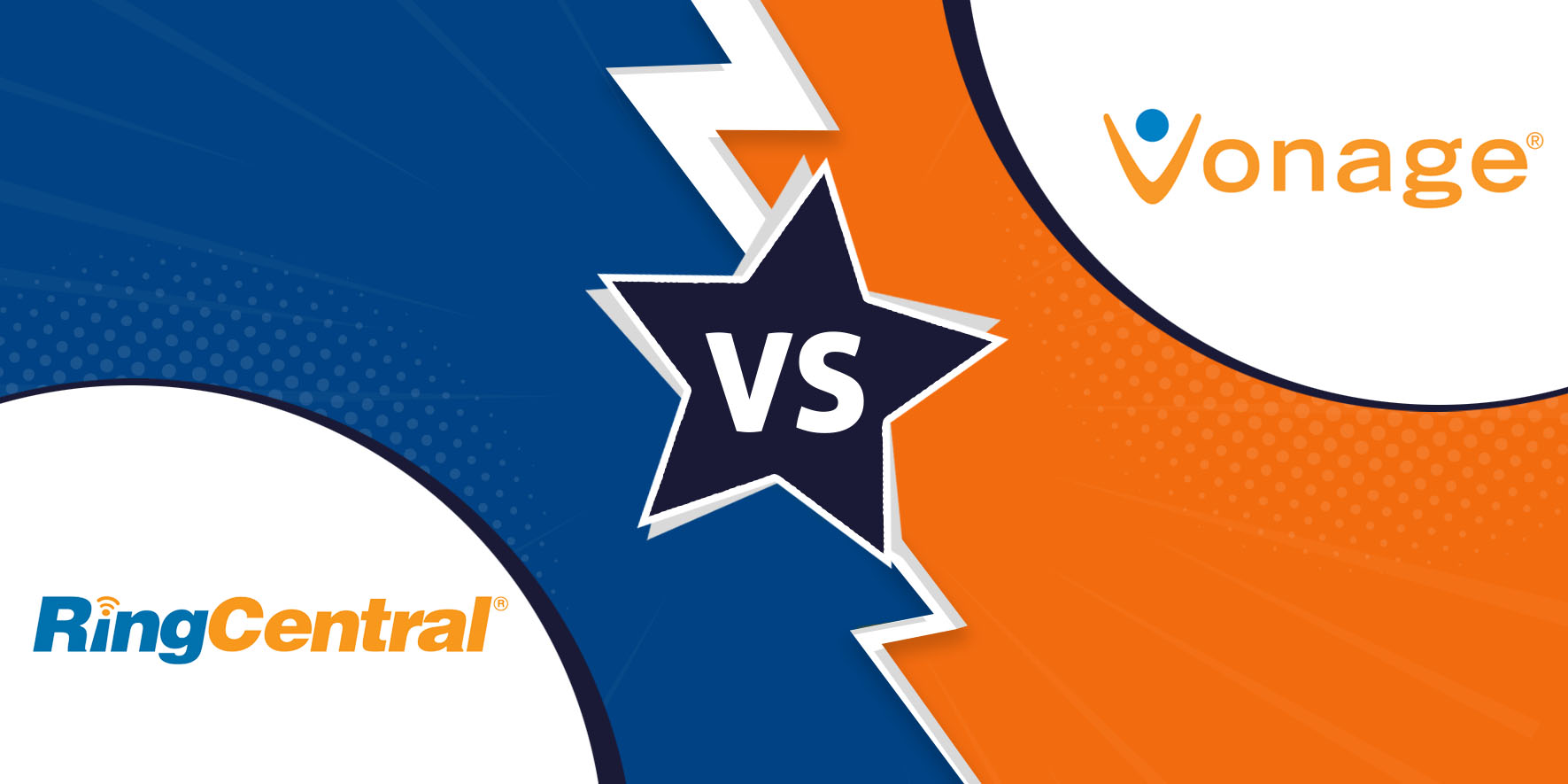Part of our RingCentral Buyer’s Guide.
Cloud-based communication services are quickly transforming the way that businesses connect both internally, and externally. The flexibility and versatility of the cloud unlocks new benefits and opportunities that organisations never had access to in the past, giving big and small companies the chance to grow at an accelerated rate.
As the Unified Communications as a Service market continues to grow at an accelerated rate, businesses are left wondering which vendor they should choose to help them get ahead of the competition. Two of the major UCaaS leaders today are Vonage, and RingCentral.
RingCentral is a publicly-traded provider of cloud-based solutions for communication and collaboration. Vonage is a publicly-held VoIP telephony company that provides companies and individuals alike with the communication strategies they need through stable internet connections. Let’s take a look at both brands in closer detail.
Financials
Ever since RingCentral was launched in 1999, it’s seen incredible growth, delivering a range of new products and innovations to the market. In Q4 of the financial year for 2018, RingCentral published financial results like:
- Total revenue increased 34% year over year to $189 million
- Software subscriptions revenue increased 32% year over year to $172 million
- Annual Recurring Revenue (ARR) increased 33% year over year to $726 million
- RingCentral Office ARR increased 38% year over year to $644 million
- Mid-market and Enterprise ARR increased 73% year over year to $309 million
- Enterprise ARR increased 99% year over year to $171 million
Vonage began a little later than RingCentral, in 2001. Founded by Jeffrey A. Citron, and Jeff Pulver, the company has seen fantastic success over the years, and now has offices around the world. Vonage’s 2018 full year and Q4 GAAP highlights were:
- 2018 Vonage Business Revenues of $608 Million, a 22% Increase Over 2017
- Fourth Quarter Vonage Business Revenues of $170 Million, a 27% Year-Over-Year Increase
- Fourth Quarter Vonage Business Service Revenues of $149 Million, a 32% Year-Over-Year Increase
- 2018 Consolidated Revenues of $1.05 Billion, a 5% Year-Over-Year Increase
- 2018 Income from Operations of $52 Million and Adjusted OIBDA of $178 Million
Gartner Says:
Every year, Gartner releases their Magic Quadrant listing the leaders, challengers, visionaries, and niche performers in the UCaaS industry. RingCentral has been named a UCaaS Leader by Gartner for multiple years in a row, including 2015, 2016, 2017, and 2018.
Unfortunately, Vonage is no longer a part of the Gartner Magic Quadrant for UCaaS, after dropping off the list back in 2016.
Glassdoor Says:
From an employment perspective, it seems that RingCentral and Vonage offer their employees a very different working experience. RingCentral currently has 2,500 employees, compared to Vonage’s 1,400. Glassdoor users rate RingCentral at 4.5 out of 5, and Vonage at 2.8 out of 5 for employee satisfaction.
Portfolio Comparison:
Vonage and RingCentral both focus on the category of Unified Communication and Collaboration. The UC offering from Vonage and RingCentral’s “Office” service share many common features, including:
- Call Forwarding
- Call Recording
- Call Reporting
- Call Flip, Pass, or Park
- Paging
- Hold Music
- Call Monitoring
However, RingCentral Office also features:
- Shared lines
- Message alerts
- Missed call notifications
- Visual voicemails
- Intelligent IVR
While Vonage Business Call Management offers:
- Call announcements
- Call queuing
- Caller ID
RingCentral Office also provides a stronger solution for collaboration than Vonage. Vonage uses Amazon Chime to deliver collaboration to customers, while RingCentral has their own collaboration and instant messaging service in the form of “Glip”. RingCentral also has a unique video conferencing service called RingCentral Meetings.
Both RingCentral and Vonage also have an omni-channel contact centre service available over the cloud.
The Vonage Omnichannel contact centre for Vonage Enterprise includes:
- Quality of service management
- Real-time analytics and reporting
- APIs
- Remote support
- Unified workforce engagement interface
RingCentral Contact Centre offers include:
- All-in-one management interface
- Speech analytics
- Intelligent IVR and smart routing
- Advanced reporting and real-time analytics
- Workforce optimisation
- RingCentral Engage
Target Market & Regional Availability
Both RingCentral and Vonage are UCaaS companies with a global footprint. However, RingCentral is universally recognised as a market leader in UCaaS and is not in the top three list for market share and adoption.
Additionally, both RingCentral and Vonage offer services that appeal to a broad range of customers, including small businesses, mid-sized organisations and large enterprises.
Pricing & How to Buy
Vonage and RingCentral both offer a range of pricing and licensing options to their customers for their UC and contact centre services. However, while RingCentral provides a 15-day free trial, Vonage does not. Customers can purchase their packages from both vendors through an internal sales team. RingCentral’s packages include:
- Entry-level for £7.99 per month per user
- Standard for £14.99 per month per user
- Premium for £19.99 per month per user
- Ultimate for £24.99 per month per user
Vonage packages include:
- Select: £9 per month, per user
- Professional: £12 per month, per user
- Ultimate: £16 per month, per user
RingCentral and Vonage also offer the opportunity to build your own packages with extra add-ons and features.
Finishing Thoughts
If you’re looking for a UCaaS provider that offers a wide selection of robust conferencing and collaboration features, RingCentral could be the ideal choice, as the company has far more to offer in these spaces. However, Vonage does excel with excellent call management functionalities, easy set-up, and click-to-call capabilities.
As always, the right choice for you will depend on the kind of communication environment you want to create.
Q: What Services does each vendor integrate with?
A: Both RingCentral and Vonage UC solutions integrate with Salesforce, although RingCentral also offers integrations with Outlook, Box, Zendesk, Desk.com, Google, and Oracle Sales Cloud. Vonage Business provides integrations with Zoho, SugarCRM, Microsoft Dynamics, NetSuite, Sage, and GoldMine.
Q: What is Customer support like for Vonage and RingCentral?
A: RingCentral offers 24/7 support through online chat, email, and phone call. Vonage provides phone support from Monday to Saturday between 8am and 10pm GMT, and Sundays between 10am and 5pm.
Q: What is the service guarantee for each vendor?
A: RingCentral promises superior reliability and service availability with a 99.999% uptime SLA. Vonage currently doesn’t have an uptime guarantee available, but they do have a money-back guarantee and service cancellation form.







